
When Is The Best Time To Visit
Visiting Ohio can be a great experience, largely depending on when you choose to go. Different seasons offer different experiences, so consider what you’re looking for before planning your trip.
Spring (April to June)
- The weather is mild with temperatures ranging from 50°F to 70°F.
- You’ll see blooming flowers and green parks, perfect for outdoor activities.
- It’s less crowded, making it a good time to enjoy local attractions.
Summer (July to August)
- Warm temperatures average between 80°F and 90°F.
- Ideal for visiting amusement parks like Cedar Point.
- State fairs and festivals are in full swing, offering you a taste of Ohio’s culture.
Fall (September to November)
- Cooler temperatures (50°F to 70°F) and the changing colors of leaves are stunning.
- It’s harvest season, and you can enjoy apple picking and wine tastings.
- Fewer visitors mean a more relaxed trip and better hotel rates.
Winter (December to March)
- Cold with snowfall, Ohio transforms into a winter wonderland.
- It’s perfect for indoor attractions or winter sports in areas like the Snowbelt.
Here’s a simple breakdown to help you decide:
| Season | Pros | Cons |
|---|---|---|
| Spring | Mild weather, fewer crowds | Rainy days can be frequent |
| Summer | Outdoor activities, festivals | Can be hot and crowded |
| Fall | Beautiful foliage, good for road trips | Daylight hours get shorter |
| Winter | Fun snow activities, cozy attractions | Very cold, snow may disrupt travel |
When Is The Worst Time To Visit
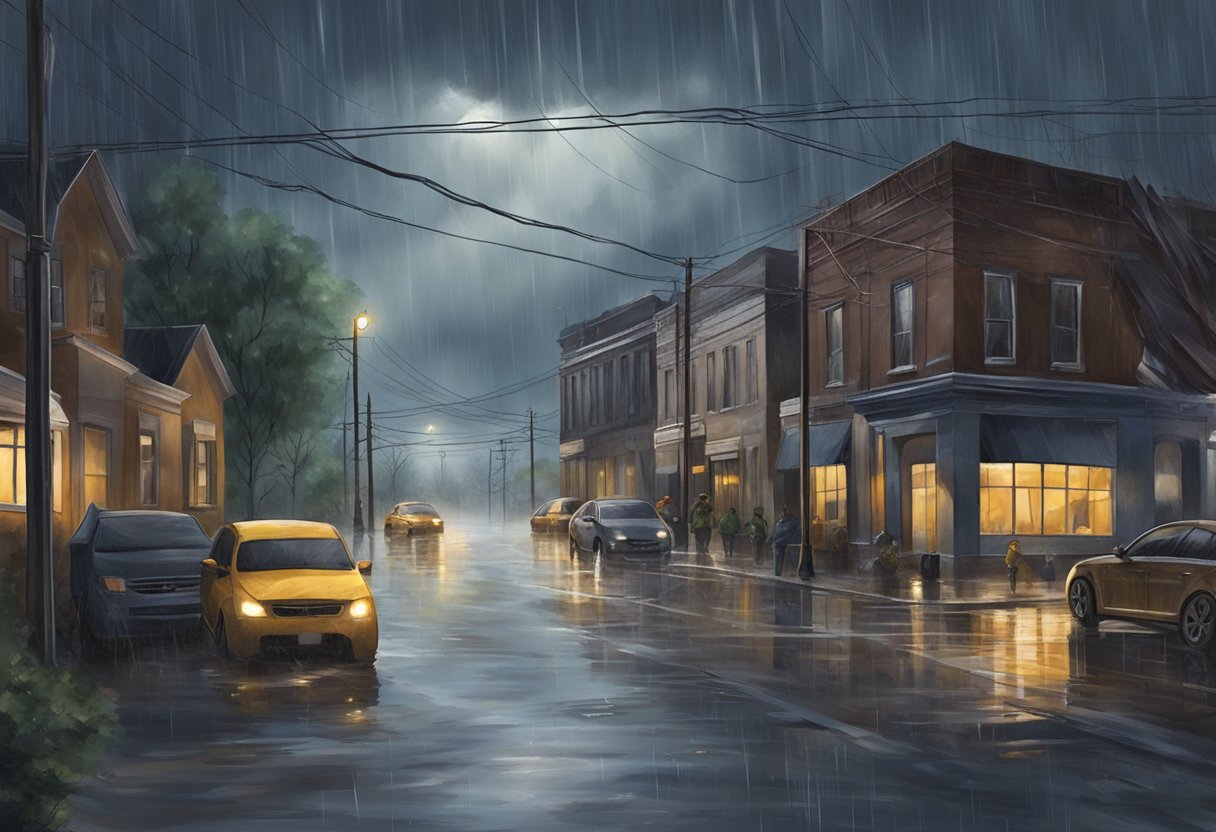
Traveling to Ohio? You might want to avoid certain times of the year, typically due to weather conditions and events that might not suit your plans.
Winter Months (December-February)
- Cold and Snow: You’ll face harsh cold and snow, with temperatures often below freezing.
- Driving Challenges: Snowy and icy roads can make driving hazardous.
| Month | Average Low Temp | Snowfall |
|---|---|---|
| December | 24°F | 6.5″ |
| January | 19°F | 8.8″ |
| February | 22°F | 7.5″ |
Tornado Season (May-June)
- Severe Weather: Increased risk of tornadoes and thunderstorms.
| Month | Tornado Average |
|---|---|
| May | 5 |
| June | 3 |
Events:
- Avoid Crowds: Major events like the Ohio State Fair can lead to overcrowded attractions and higher accommodation prices.
Spring Thaw (March-April)
- Unpredictable Weather: Mix of chilly rain or late-season snow.
- Muddy Conditions: Melting snow can lead to muddy, less enjoyable hiking and outdoor activities.
Humid Summers (July-August)
- Heat and Humidity: It can get uncomfortably hot and sticky, affecting outdoor fun.
- Peak Tourist Season: Higher prices and lots of tourists.
The Cheapest Time To Visit
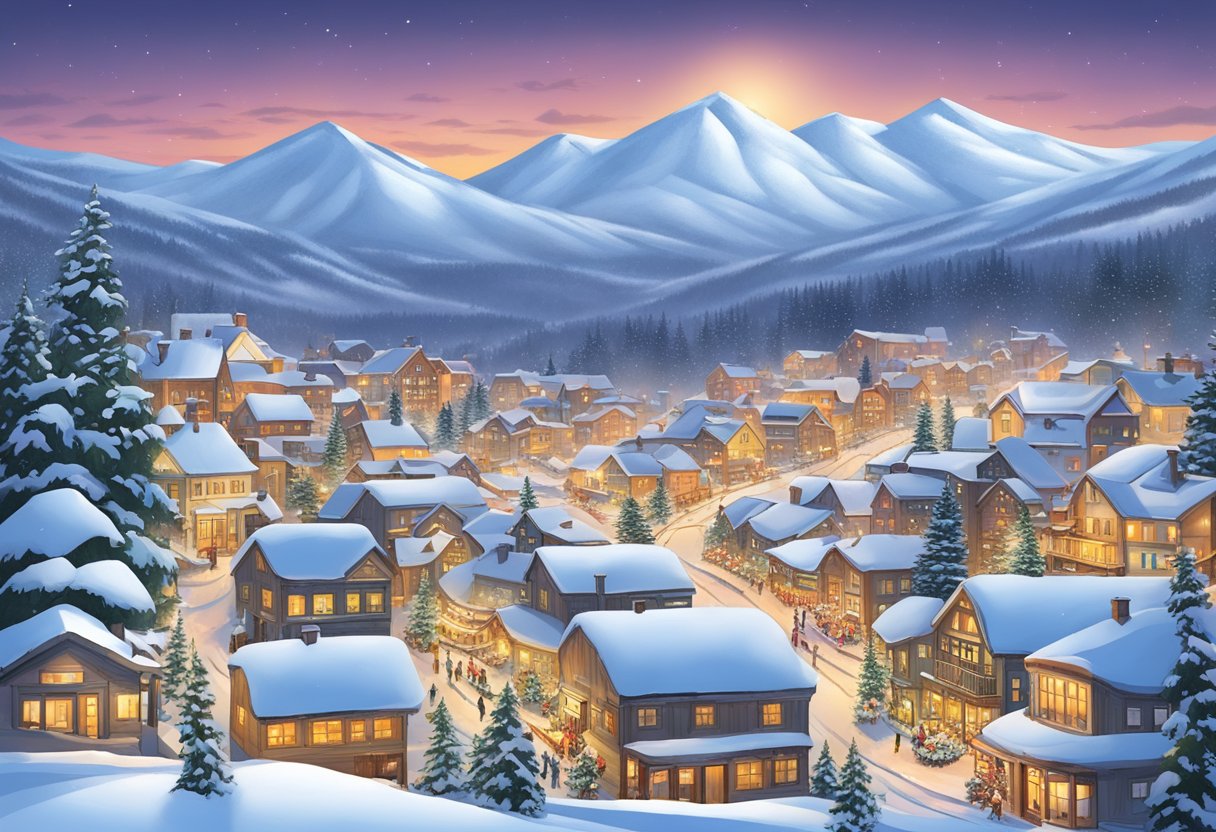
When you’re looking to visit Ohio on a budget, timing is everything. Historically, travel costs drop during the off-peak seasons, which in Ohio, generally means during the colder months.
-
Winter (January – February): After the holiday rush, you’ll find lower prices on accommodations and flights. However, pack warmly as it gets quite chilly!
-
Early Spring (March – April): The weather starts to thaw, and prices remain low as tourist activities slowly pick up.
-
Late Fall (October – November): Post-summer festivities mean fewer crowds and more savings, especially as the weather turns brisk.
Here’s a simple table to outline the average hotel rates during these times:
| Month | Average Hotel Rate |
|---|---|
| January | $80-$100 |
| February | $80-$100 |
| March | $90-$110 |
| April | $100-$120 |
| October | $90-$110 |
| November | $80-$100 |
Tip: Keep an eye on local events as they can affect prices. For example, hotel rates might spike if there’s a big sports game or convention in town, even during these cheaper periods.
Remember, to save even more, consider booking your stay and tickets well in advance and use price comparison tools to nab the best deals. Traveling to Ohio during these low-cost times can mean more money in your pocket for exploring all the Buckeye State has to offer.
Off-Season: Least Busy Time To Visit
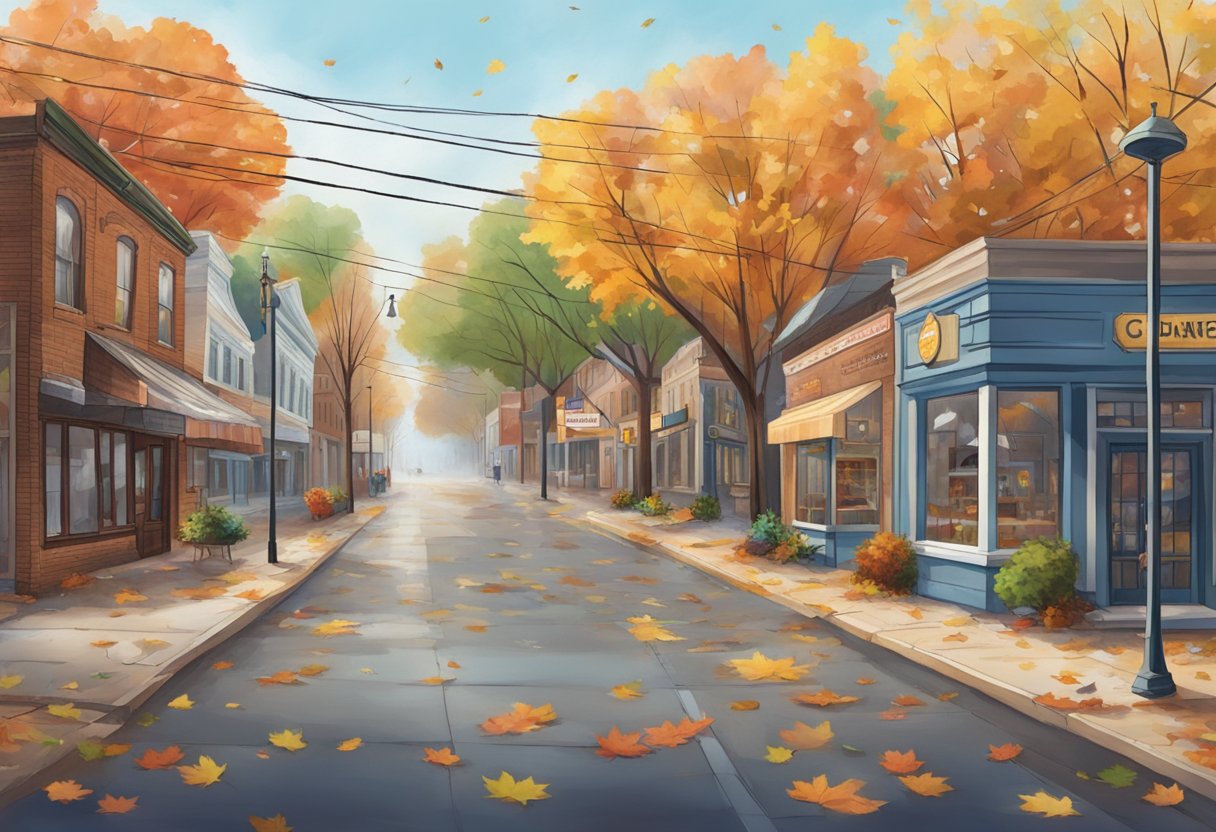
If you’re looking for a quiet time to explore Ohio without the hustle and bustle, aim for the off-season. This period usually runs from late fall to early spring, when tourist attractions are less crowded and lodging can be more affordable.
When To Go
- November to March: These months are less popular with tourists, meaning you’ll often find more peace and quiet.
- After the holidays: Wait until after the New Year celebrations for even fewer crowds.
Weather
- Be ready for chilly temperatures and snow, especially from December to February. If you don’t mind bundling up, you’ll enjoy the serene, snowy landscapes.
Benefits
- Cost: Lower demand can mean better deals on hotels and attractions.
- No Crowds: You can visit popular spots like museums and parks without waiting in long lines.
- Local Events: Experience some of Ohio’s unique winter festivals.
Things to Consider
- Limited Hours: Some attractions may have reduced hours or be closed in the off-season.
- Prepare for Winter: Pack warm clothes and be ready for potential snow or ice if you’re driving.
Remember, traveling in the off-season means you get to see a more relaxed side of Ohio, but always check ahead for the availability of activities and accommodations.
The Most Expensive Time To Visit
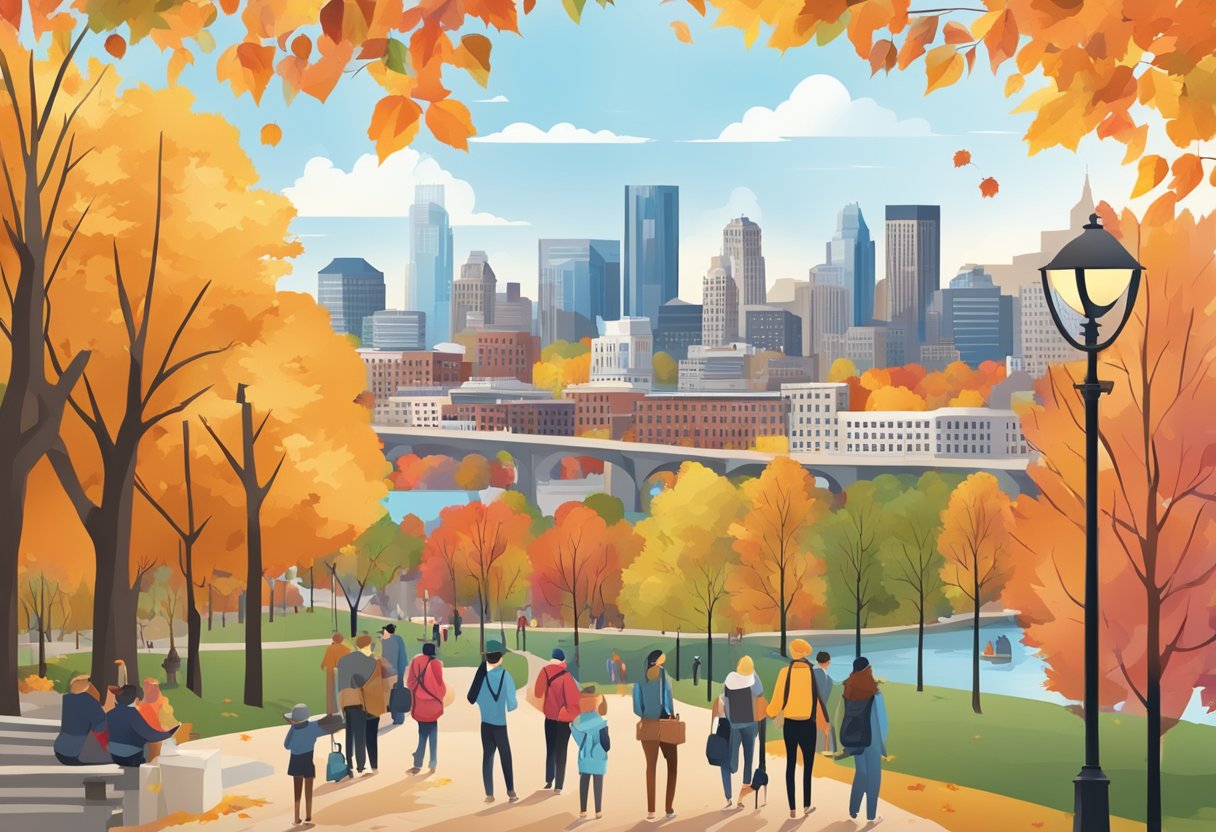
If you’re planning a trip to Ohio, you might want to know when it’ll cost you the most. Typically, the most expensive time to visit Ohio is during the summer, from June to August. Why? That’s when the weather is warmest and there are lots of festivals and events.
Here’s a quick breakdown:
Hotel Prices: They tend to spike due to high demand.
- Expect price increases up to 50% compared to off-season.
-
Airfares: Higher during summer months. Booking in advance might save you some cash, but still pricier than other times.
-
Events: With events like the Ohio State Fair and music festivals, expect everything to get busy and costs to go up.
-
Car Rentals: Because everyone is trying to get around, rental prices can surge.
-
Attraction Tickets: Places like Cedar Point or the Columbus Zoo might have higher ticket prices or special event pricing.
Want to save some money? Consider visiting in the shoulder seasons like spring or fall. You’ll find the prices more manageable and the crowds thinner, which can make for a more relaxed trip.
Keep these tips in mind, and your wallet will thank you!
Hottest Months

When you’re planning to visit Ohio, you might want to know when it gets really warm. Typically, July and August are the hottest months in Ohio, with temperatures often creeping into the mid to high 80s Fahrenheit (around 29–32 Celsius).
During these summer months, humidity can make the air feel even hotter. Here’s a quick glance at the average high temperatures:
| Month | Average High (°F) | Average High (°C) |
|---|---|---|
| July | 85 | 29 |
| August | 83 | 28 |
It can get pretty toasty, causing afternoons to feel muggy and sticky. Great for pool days, but maybe too much for strenuous outdoor activities like long hikes. Remember to stay hydrated and wear sunscreen if you visit during these months – the sun can be really strong. If you’re seeking cooler, more comfortable weather, aim for the spring or fall.
Coldest Months
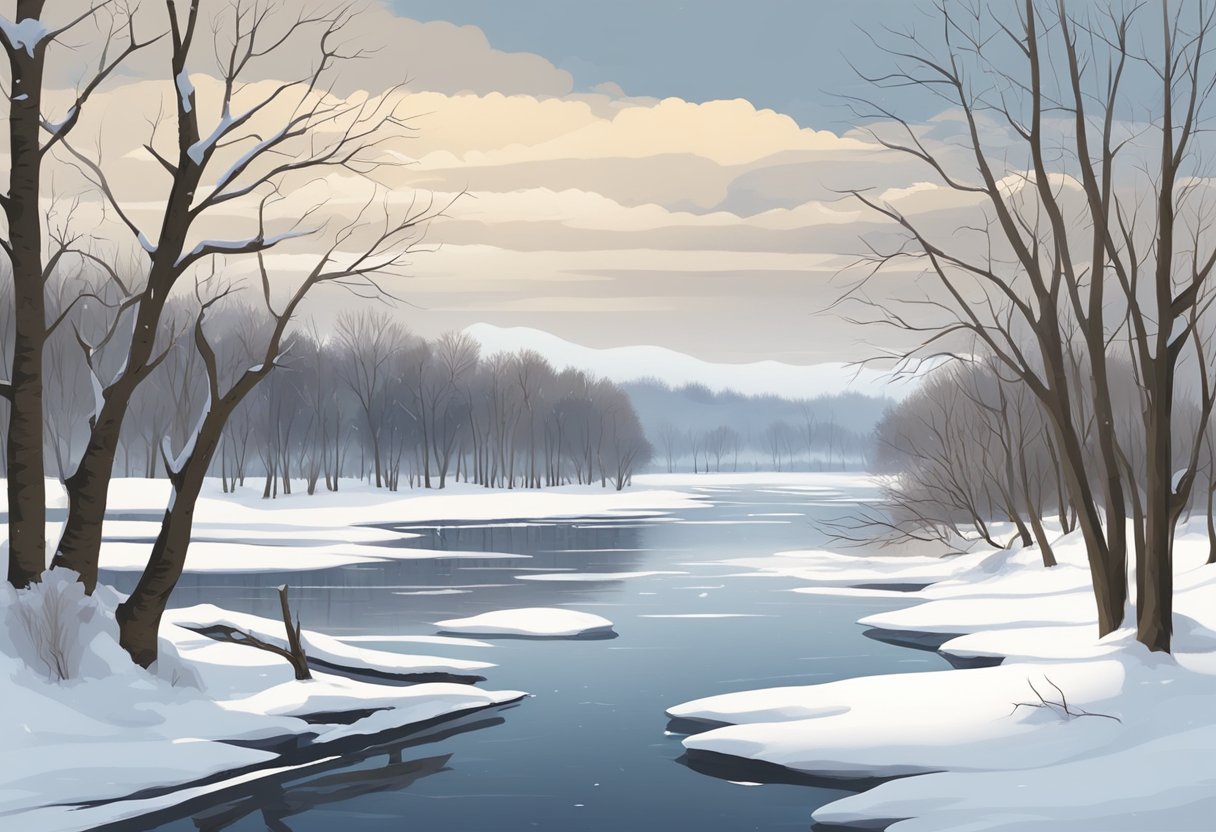
When you’re planning a trip to Ohio, you’ll want to be ready for the chill if you come during the coldest months. Typically, January is the king of cold in Ohio, with February hot on its heels.
Average Low Temperatures:
- January: often drops to around 19°F
- February: usually hovers around 21°F
During these months, you can expect snowfall, especially:
- In the Snowbelt region, which gets more due to lake-effect snow.
- Southwest Ohio often sees less.
Here’s a quick view of what you’re in for:
| Month | Average Low | Note |
|---|---|---|
| January | 19°F | Often the coldest month |
| February | 21°F | Heavy snowfall is less common |
Tips for the Cold:
- Dress in layers.
- Keep an eye on the weather forecast.
- Make sure your vehicle is winter-ready if you’re driving.
Snow can make for beautiful landscapes, so if you’re into winter photography or snow sports, this could be the perfect time for you. Just be sure your gloves are touch-screen friendly so you can snap photos without freezing your fingers off! If you’re not so fond of the cold, better to schedule your visit for the warmer months.
Month-By-Month Weather
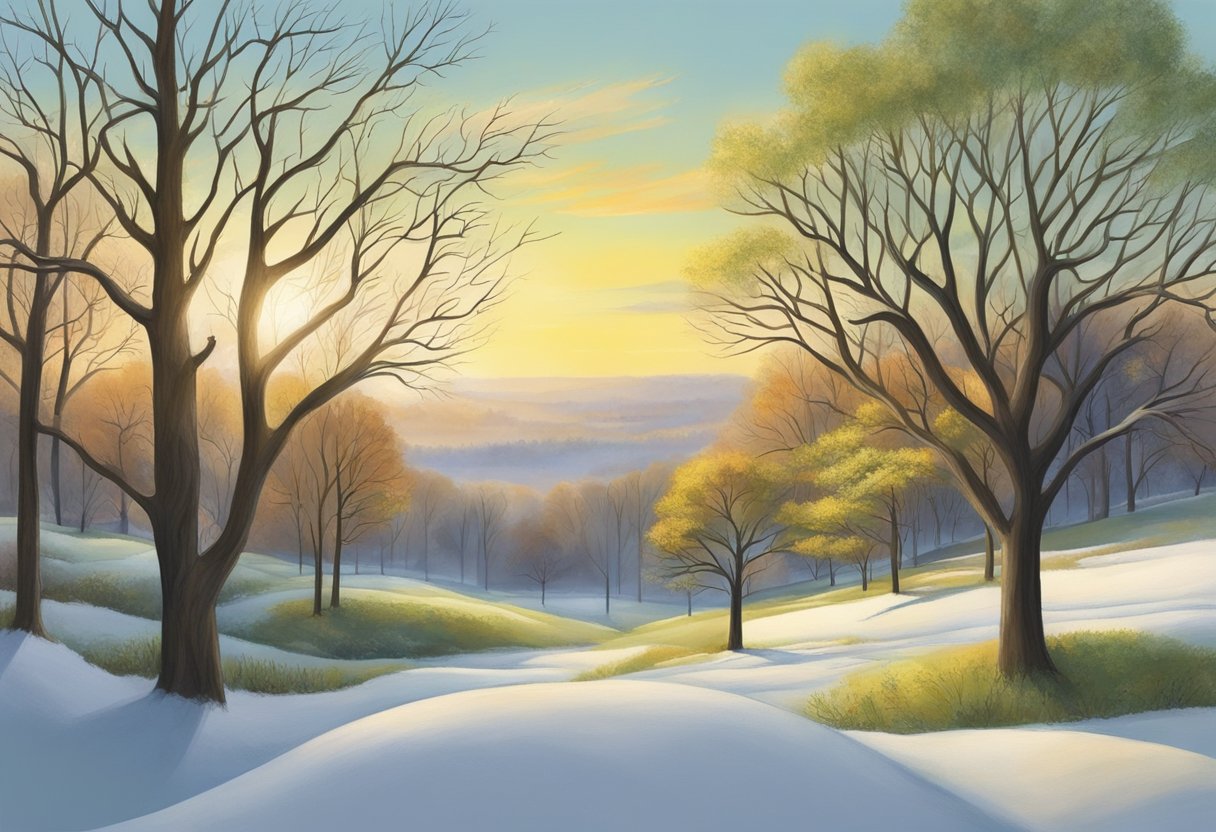
January & February: You’ll find Ohio cold with chances of snow. Temperatures often hover around 20-35°F. Dress warm if you visit then!
March: The start of spring is unpredictable—some days are chilly while others feel a bit warmer. Keep a coat and umbrella handy.
April: Spring is in full swing with temperatures from 50-65°F. It’s a comfy time to explore, but you might still need a light jacket.
May: You’re looking at nicer weather, with temps between 60-75°F. Perfect for outdoor activities without the heavy layers.
June-August: Summer is hot and sometimes humid, especially in July. Expect temperatures from 80-90°F. Shorts and t-shirts weather!
September & October: Fall brings cooler temps, from 75°F down to 50°F by late October. Layer up and enjoy the fall colors.
November: Early winter chills creep in. Temperatures drop to 40-50°F. Pack a warm coat.
December: Winter hits with full force, similar to January. Temps fall to 20-35°F, and snow is common, so bundle up!
| Month | Temperature Range (°F) | Weather Conditions |
|---|---|---|
| Jan | 20-35 | Cold, snowy |
| Feb | 20-35 | Cold, snowy |
| Mar | 30-50 | Unpredictable, chilly |
| Apr | 50-65 | Mild, occasional rain |
| May | 60-75 | Warm, pleasant |
| Jun | 70-85 | Hot, sometimes humid |
| Jul | 80-90 | Hot, humid |
| Aug | 80-90 | Hot, humid |
| Sep | 65-80 | Cooler, mild |
| Oct | 50-65 | Cool, autumnal |
| Nov | 40-50 | Chilly, early winter vibes |
| Dec | 20-35 | Cold, snowy |
Remember, weather can be unpredictable, so it’s always smart to check the forecast before you pack your bags.
Frequently Asked Questions
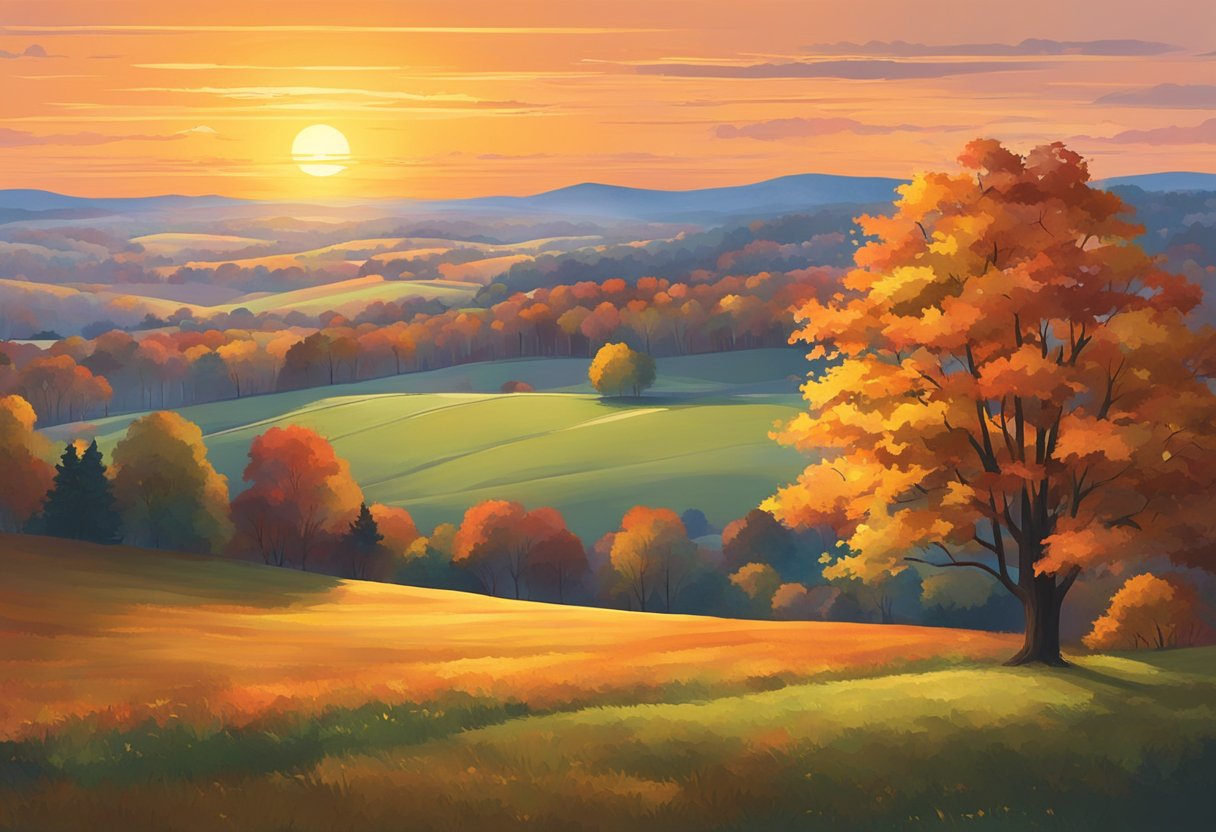
Planning your visit to Ohio? Here’s a handy guide to help you figure out the best and worst times for your trip.
What months offer the best weather for a romantic getaway in Ohio?
For a romantic getaway with pleasant weather, aim for late spring (May to early June) or early fall (September to October). The temperature is mild, and the changing leaves in fall are especially beautiful.
Which season in Ohio is least crowded for tourists, especially in Columbus?
Winter (January and February) is the least crowded season for tourists in Columbus and across Ohio, with fewer events and chillier weather keeping the crowds away.
What’s the peak season for tourist attractions in Ohio?
Summer, from June to August, is the peak tourist season in Ohio. Attractions are bustling and events are plentiful, making it a lively time to visit.
During which months should one expect the mildest temperatures across Ohio?
During the months of May, June, September, and October, you can expect some of the mildest and most comfortable temperatures throughout Ohio.
Is there a specific time of year when Ohio experiences more rainfall than usual?
Ohio tends to experience more rainfall in the spring, particularly during April and May, so pack an umbrella if you’re visiting then.
What are some enjoyable activities to do in Ohio throughout the different seasons?
In spring, explore the blooming gardens and parks. Summer is perfect for visiting Lake Erie beaches and amusement parks. Fall offers scenic drives for leaf-peeping, and winter is ideal for cozy indoor attractions and snow sports in northern parts.
